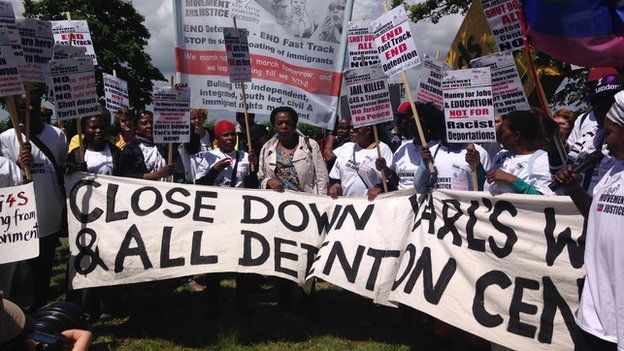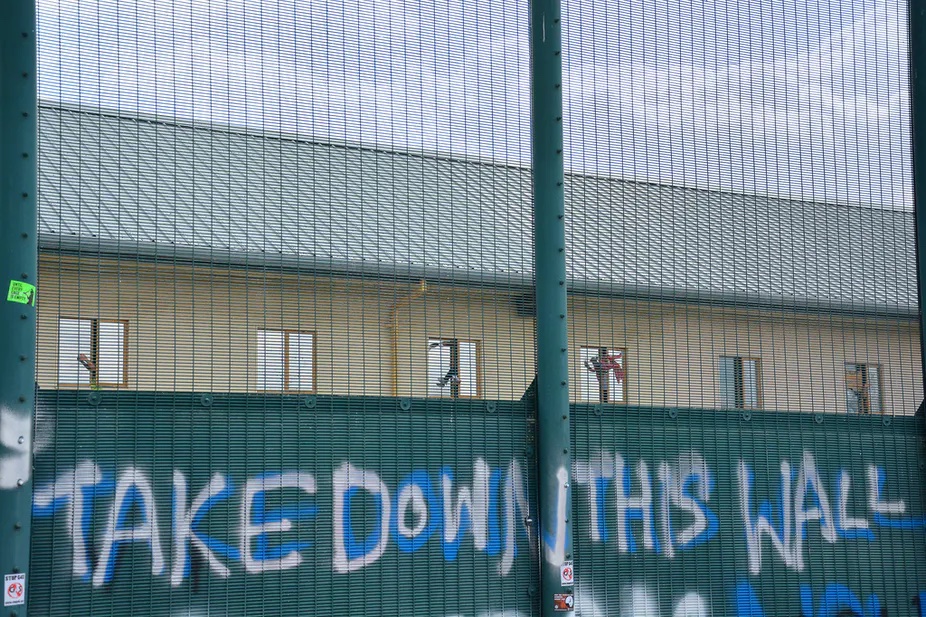
England built a special hell for women: Yarl’s Wood. This week, 120 Yarl’s Wood women prisoners are on hunger strike. The women are protesting indefinite detention, abysmal healthcare services, abuse, and denial of personal and collective dignity and humanity. Today, after being denied entry for a year, shadow home secretary Diane Abbott was finally allowed inside the complex. Abbott was accompanied by Shami Chakrabarti, the shadow attorney general. Eight years ago, to the day, women prisoners at Yarl’s Wood engaged in a hunger strike from February 5 to March 19, 2010. That same year, in January, Bita Ghaedi entered into a weeks long individual hunger strike, out of fear of certain death if she was returned to Iran. In March 2015, women prisoners at Yarl’s Wood went on a hunger strike. Why does England, or the government of England, want to demean, abuse and traumatized so many vulnerable already traumatized women, most of women are African and Asian? Why does England hate so many women so intensely? When will this reign of terror end?
One hunger striker, an Algerian woman who has lived in England since she was 11 years old, explained, “Every day I wake up and I have to think of a reason to go on. I’ve given up thinking about the outside – I’ve given up thinking about it. I feel like I’m in someone’s dungeon and no one is letting me out. I might as well be blindfolded in a van going 100 miles an hour in a direction I don’t know. The indefinite detention causes people so much stress. People are breaking down psychologically. We have no fight left. They break you down. It’s inhumane. And there’s no psychological help. I’ve tried speaking to a psychological nurse in the centre about issues I have, and he advised me to speak to my solicitor about it.” This woman has been in Yarl’s Wood for three months. She has no idea if and when she will be released.
In 2017, `Voke’ spent eight months in Yarl’s Wood. While imprisoned there, she attempted suicide: “It was such a relief to get out of there. But I don’t understand why they had to put me through it at all. I hope I will start to feel better soon, but I will never forget being detained. I will never forget Yarl’s Wood.”
Eight years ago, Yarl’s Wood hunger strikers – including Denise McNeil, 35 year old Jamaican asylum seeker; Mojirola Daniels, Nigerian asylum seeker; Leila, Iranian asylum seeker; Victoria Odeleye, 32 year old Nigerian asylum seeker – reported torture, rape, starvation, other forms of abuse. They described the devastating impact of Yarl’s Wood on imprisoned children, such as 10-year-old Egyptian Nardin Mansour. They mourned and protested the suicides as they explained that Yarl’s Wood was intent on killing them. As Laura A, a Sierra Leonean and former Yarl’s Wood prisoner, noted: “I am a fighter, I am used to fight to live, but to be told, ‘You faked your life,’ is a little like death.”
The Yarl’s Wood women hunger strikers took the calculus of the killing and turned it on its head, saying they were better than that. They said they were women, fighters used to fighting, peacemakers used to making peace, and no one could decide that it was right for them to be slaughtered. They called out, shouted, screamed, fasted, demanded to be heard … and here we are eight years later.
Over 80 percent of the women in Yarl’s Wood are survivors fleeing sexual or gender-based violence. The vast majority of women in Yarl’s Wood end up being released into the community. What sort of factory is designed to produce damage: damaged bodies, souls, psyches, lives? Yarl’s Wood. The time for concern and for discussion is over. The time for justice, and for reparations, is long overdue. Shut Yarl’s Wood down; do it now.

(Photo Credit: Politics.co.uk) (Image Credit: Detained Voices)
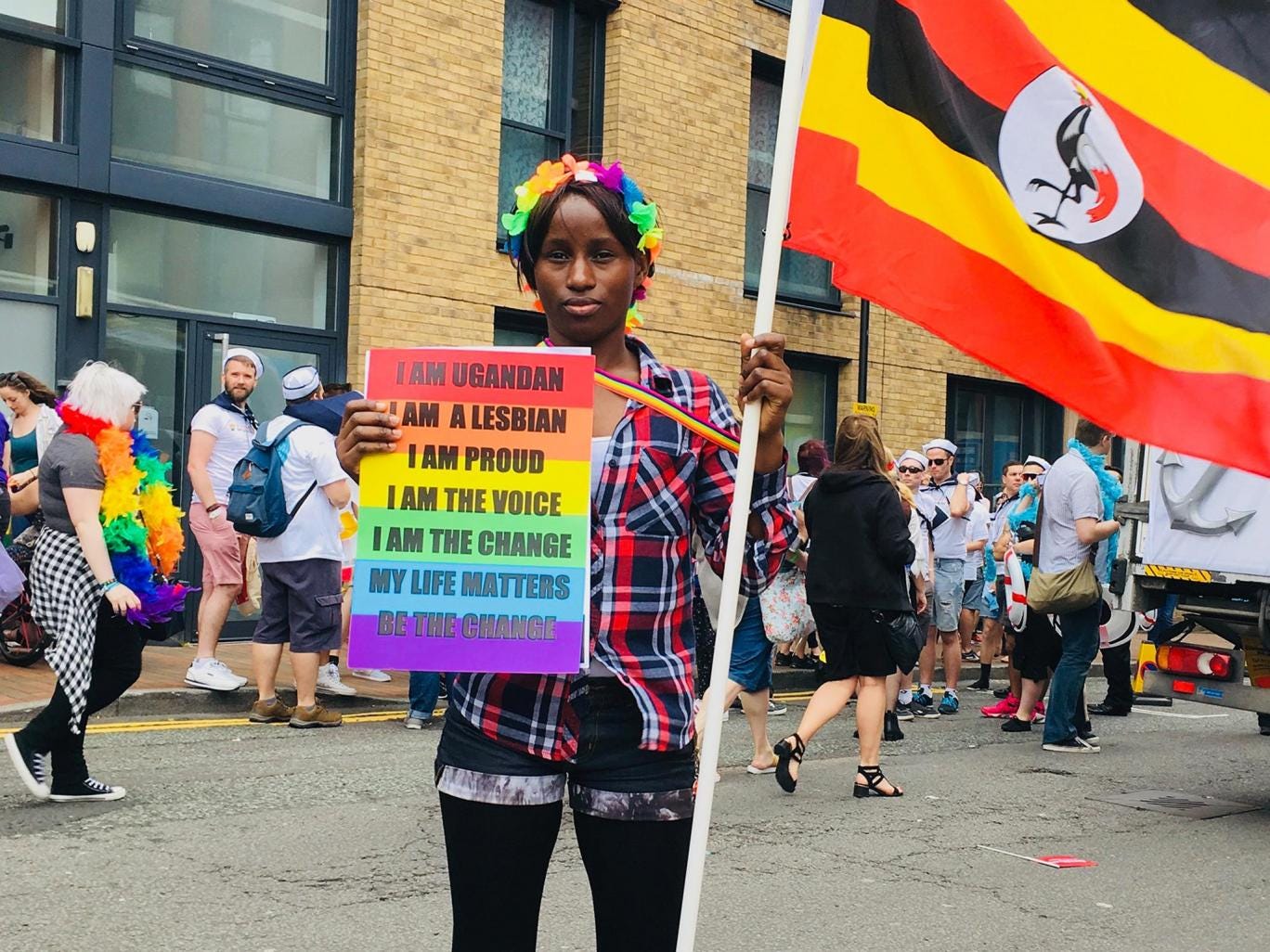
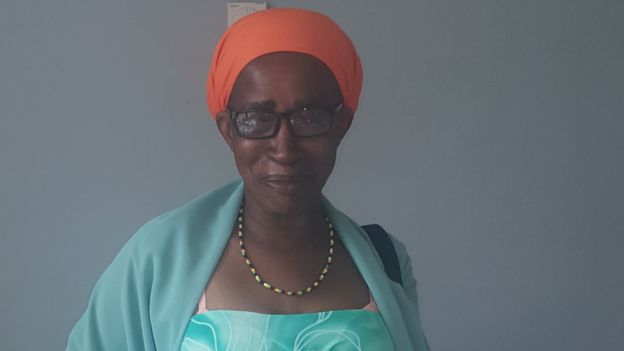


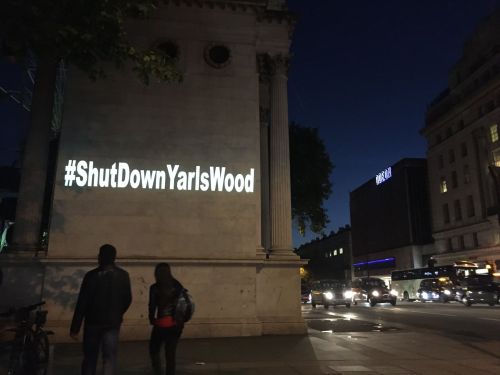


_LRG.jpg)

